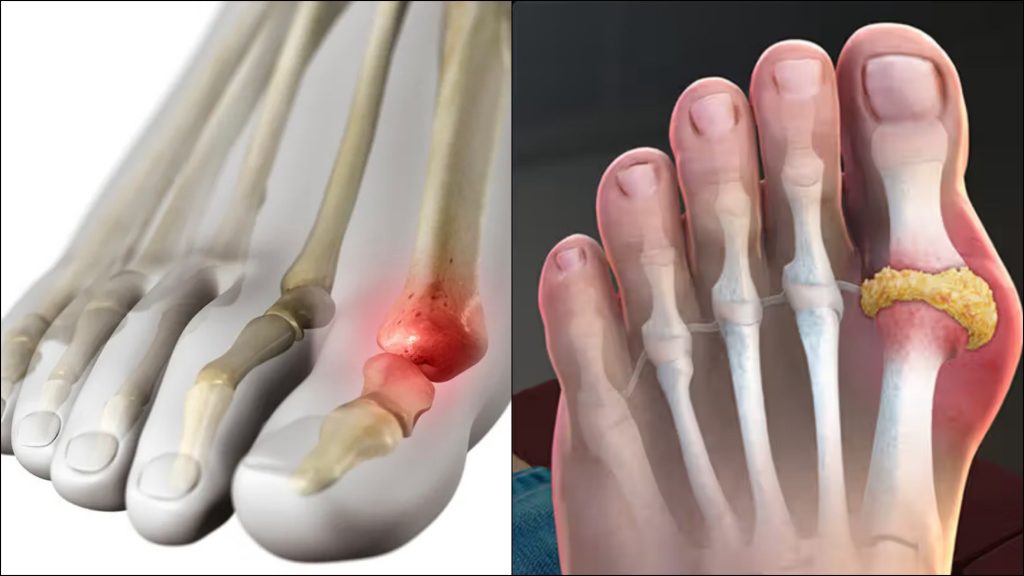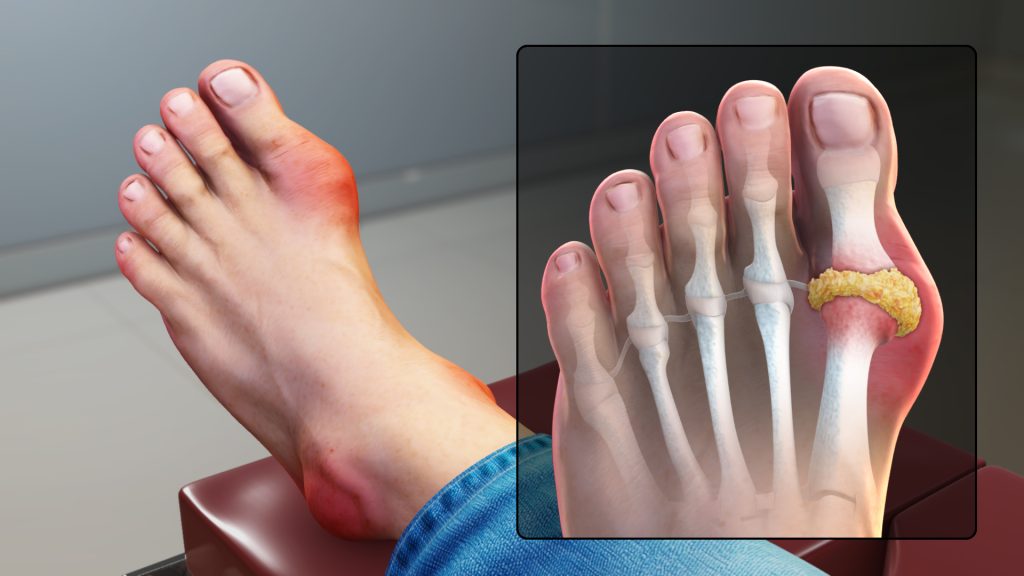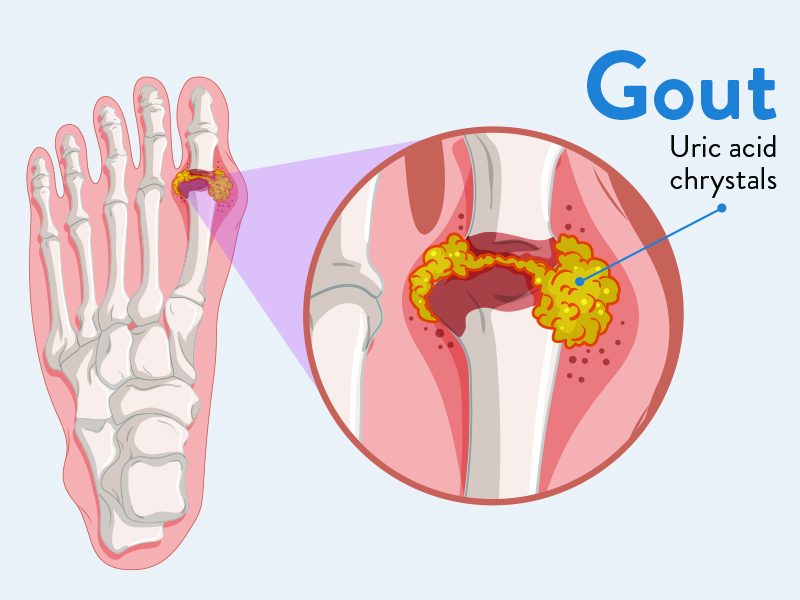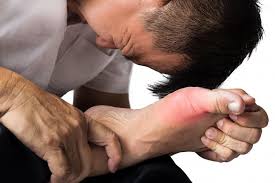Gout is a type of arthritis that causes sudden, severe pain, swelling, and redness in the joints, most often affecting the big toe. It is caused by a buildup of uric acid in the blood, which forms sharp crystals in the joints when levels become too high. Uric acid is produced when the body breaks down purines—substances found in certain foods like red meat, seafood, and alcoholic beverages. Risk factors for gout include obesity, high blood pressure, kidney problems, certain medications, and a family history of the condition. Gout attacks can be extremely painful and may come on suddenly, often at night. Treatment usually involves medications to reduce inflammation and pain, such as NSAIDs, colchicine, or corticosteroids, and long-term drugs like allopurinol to lower uric acid levels. Lifestyle changes, including a healthy diet, regular exercise, and avoiding alcohol, are also important in managing and preventing future attacks.

What Causes Gout?
Gout is caused by an excess of uric acid in the blood, a condition known as hyperuricemia. Uric acid is produced when the body breaks down substances called purines, which are found naturally in certain foods and drinks like red meat, seafood, alcohol, and sugary beverages. When the body either produces too much uric acid or has difficulty eliminating it through the kidneys, uric acid can build up and form sharp crystals in the joints. These crystals trigger inflammation and intense pain typical of gout attacks. Several factors can contribute to the development of gout, including genetics, obesity, high blood pressure, kidney disease, certain medications (such as diuretics), and lifestyle choices like diet and alcohol consumption. Men are also more prone to gout than women, especially after middle age.
Triggers and Risk Factors
- Eating foods high in purines (red meat, seafood, alcohol, sugary drinks)
- Obesity
- High blood pressure or kidney disease
- Certain medications (like diuretics)
- Family history of gout
- Male gender (men are more likely to get gout)

Gout symptoms :
Gout symptoms often appear suddenly and can be extremely painful. The most common sign is a sudden attack of intense pain, usually in the big toe, although it can also affect the ankles, knees, elbows, wrists, and fingers. The affected joint often becomes red, swollen, warm, and very tender to the touch, sometimes making it difficult to walk or even wear socks or shoes. The pain typically starts at night and can last for several days, with the most intense discomfort occurring within the first 12 to 24 hours. After the initial attack, the joint may feel stiff or sore for days or even weeks. Without treatment, gout attacks can become more frequent and affect more joints over time.
Sudden, intense joint pain (often at night)
Swelling and redness in the affected joint
Warmth and extreme tenderness
Limited movement of the joint

Solutions for Gout :
Gout can be effectively managed through a combination of medications, lifestyle changes, and dietary adjustments. During a gout attack, doctors may prescribe anti-inflammatory drugs such as NSAIDs, colchicine, or corticosteroids to relieve pain and swelling. To prevent future attacks, long-term medications like allopurinol or febuxostat are used to lower uric acid levels in the blood. Lifestyle changes are also important in controlling gout. These include maintaining a healthy weight, exercising regularly, drinking plenty of water, and avoiding alcohol and sugary drinks. Dietary adjustments are essential—patients are advised to limit foods high in purines, such as red meat, organ meats, and certain seafood, while eating more fruits, vegetables, whole grains, and low-fat dairy products. With proper treatment and healthy habits, most people with gout can manage their symptoms and prevent further complications.
1. Medications
- For pain and inflammation during attacks:
- NSAIDs (e.g., ibuprofen, naproxen)
- Colchicine (reduces swelling and pain)
- Corticosteroids (e.g., prednisone)
- To lower uric acid levels long-term:
- Allopurinol or Febuxostat (reduce uric acid production)
- Probenecid (helps the kidneys remove uric acid)
2. Dietary Changes
- Avoid foods high in purines:
- Red meat, organ meats (liver, kidneys)
- Shellfish and certain seafood (anchovies, sardines)
- Sugary drinks and alcohol (especially beer)
- Eat more:
- Fruits and vegetables
- Whole grains and low-fat dairy
- Water (stay well hydrated)
3. Lifestyle Adjustments
- Maintain a healthy weight
- Exercise regularly (but avoid intense activity during a flare-up)
- Limit alcohol and sugary drinks
- Manage conditions like high blood pressure or diabetes
4. Regular Monitoring
- Keep uric acid levels in check with routine blood tests
- Follow up with your doctor to adjust medications if needed
